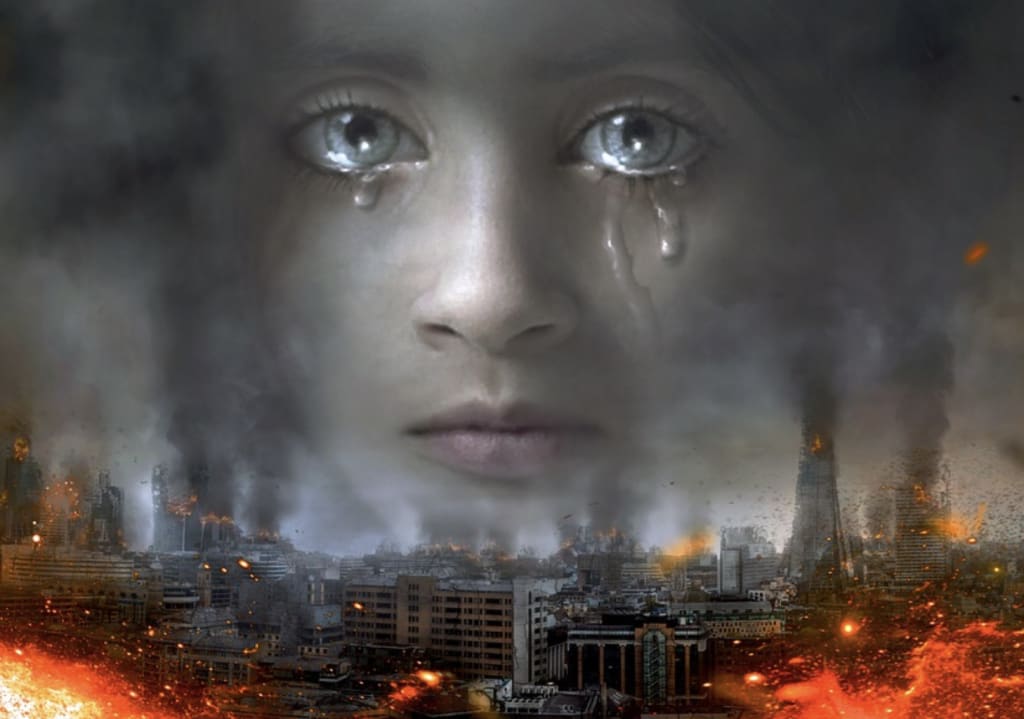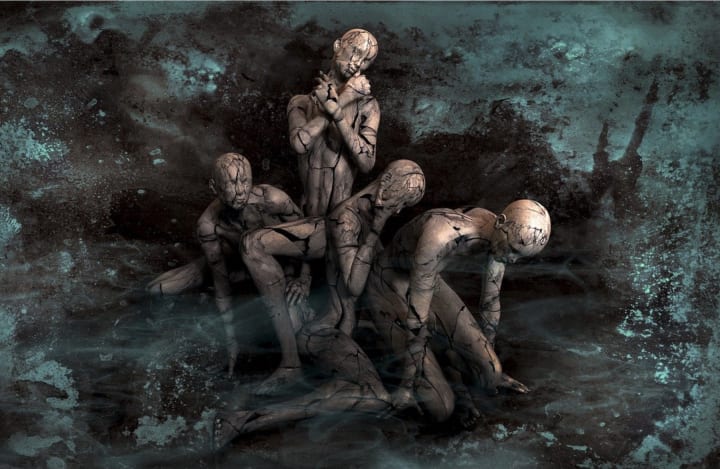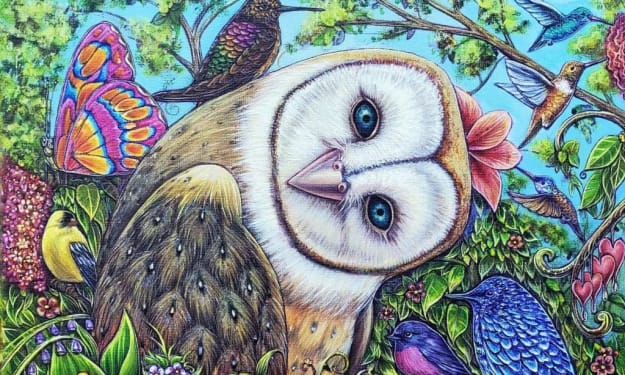22nd Century: Love and Hope in the Midst of the Depression Pandemic
It has been 100 years since the notorious COVID-19

“Kyle,” says Marina, her blond stringy hair is a mess. Her face — glistening in the dark.
“Listen to me,” she pulls on his lifeless arm. “We'll be all right.”
Kyle doesn’t respond. His face is expressionless, eyes closed. His body is stretched out on the bed.
Marina drops on her knees next to him. Rests her head on his chest.
“This is like the COVID pandemic one hundred years ago, Kyle.
“I figured it out. I knew it, even before I saw the holographic news. I knew that that was a virus. A virus causing Depression. The pandemic, like the COVID of the 21st century.
“Millions died then. It lasted until they vaccinated most of the humans. COVID coronavirus caused lung failure. This one causes Depression.
“You should see the streets, Kyle. If I wasn't a scientist, I’d succumb to despair. Very much like an old horror movie. All the people. They are no longer humans. They are zombies.

“No, Kyle, they were once humans. Now, they might be zombies as well. Zero emotions. Some just lay on the ground. Some sit motionless, frozen statues. Some are moving aimlessly.
“Don’t you worry, Kyle. There are frontliners, like always. Yesterday, we went door to door.
“Imagine, people — in bed or on the floor, unable to get up. Laying flat, staring at the ceiling. Many — sound asleep. Many — starving to death. Nobody watches the holographic news that is pumped into their rooms. Perhaps, that's for the better.
“The rooms — in total chaos. Leftover food, gigantic rodents everywhere. The people who are still moving eat anything they come across, mechanically, right next to rodents. Cleanliness? There is no such thing. Nobody cleans anything. It's gruesome.
“People no longer answer the intercoms installed into their personal heart-shaped lockets.

“The lockets — just dangling around their necks. They are ignoring the signal. Most are not reading the messages that the locket screen flips up one by one right in front of their faces.
“There is a symbolism in that. Don't you think? The lockets became what they used to be — the necklace pendants, like in the 16 century.
“How would you like to live in the 16 century? I wouldn't mind. I’ve had enough of high tech. Everything then was about feelings. They knew empathy. Love, loving was one of the strongest feelings.
“Love, Kyle! Do you know what I mean? You are a man. I am a woman. I know, it's such an ancient concept.
“My grandma told me how important love was in her day. There were songs inspired by love. Movies. Yes, crude mementoes. Yet, so significant for those times.
“Now this Depression virus. It's contagious, like COVID-19.
“The vaccine research is underway. Both digital and biological vaccines. Now that we are all partially bionic, we need both.
“There is a small group of people who are resistant to Depression. My Ma is one of them. She's 98. She is housed in a special community. They are more human than bionic. They were aged out from mass digital enhancement.
“Did you know? My Ma was a comedian, like my grandma. They believed in laughter. My Ma still makes me laugh.
“We want to try laughter on depressed people. It's hard to achieve with bionic humans.
“Everyone is now embedded with a chip. The chips are skewed in hard core knowledge. Not much for feelings. All feelings were dismissed by the bureaucrats. They approved the human enhancement chips.
“All kids used to be good at silly laughter. Answering without thinking. Now they don’t. Their bionic brains are too logical.
“There are few pure humans left. Most are bionically enhanced. Just in some places like the facility where my Ma lives. All of us, who were born in the 22nd century, are bionic. That’s why we are an easy target for this Depression virus.

“I love you. Look at me, I love you, Kyle. You are just depressed. I studied Depression. I know that being depressed is very human.
“We can fight this, Kyle. There always was a subset of humans who were depressed. Only now it is a pandemic of Depression.
“I never expected you to get depressed. I thought you were more like me. I remember the way you were until you got infected.
“You touched me with your fingers. It was exhilarating. The way you looked at me. I kept all your holographic messages. Here, in my heart-shaped locket. I read them at night.
“I am immune to Depression. I think I am.
“My ancestors were tough Russians. They didn't have food and they laughed. Then my great great grandma ran away to the US from Russia and married a handsome American. Do you know what handsome means, Kyle?
“Handsome implies charisma. It's lost now, because everyone wanted a bionically corrected look.
“Charisma is in your eyes. Your smile. I think the reason this virus was able to infect so many of us is because of what we did with the human genome. Too many corrections. We were striving for physical and intellectual perfection and that’s the backlash.
“I swear by my grandma, Kyle. I'll take care of you. She took care of her lovers. That was the norm.”
Marina looks up at Kyle. There is a slight, elusive smile on his face. “I hear you,” she says, as if Kyle says something.
Her red face is wet from tears. “We are the champions,” she whispers. She doesn’t know what that means. Her grandma used to say that when she felt that something was going right.

Dear Readers, thank you for reading! Feel free to ask questions. Special Thanks to Pam Mayer — my dear friend, editor and collaborator.
About the Creator
Irina Patterson
M.D by education -- entertainer by trade. I try to entertain when I talk about anything serious. Consider subscribing to my stuff, I promise never to bore you.
Enjoyed the story? Support the Creator.
Subscribe for free to receive all their stories in your feed. You could also pledge your support or give them a one-off tip, letting them know you appreciate their work.






Comments
There are no comments for this story
Be the first to respond and start the conversation.